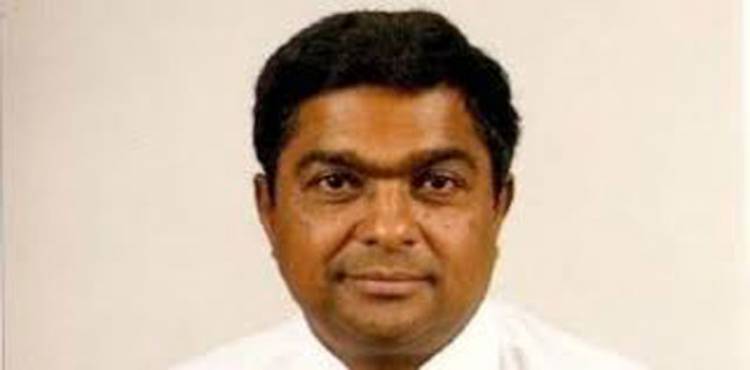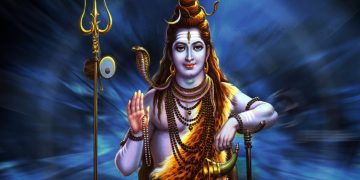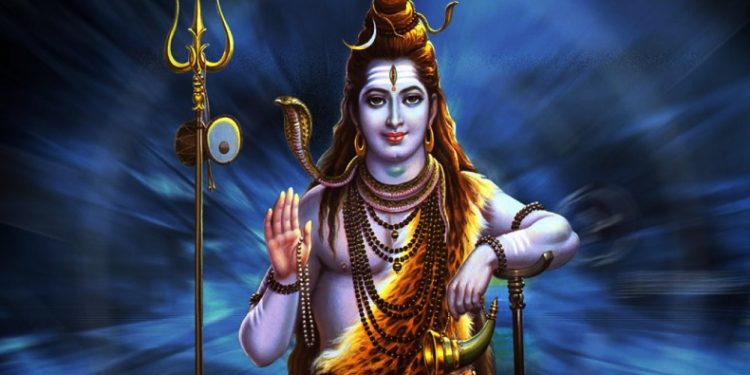Port-of-Spain: Whilst Carnival lovers danced to steelpan music and soca songs, devout Hindus observed the annual ritual of Shiva Raatri on Friday Feb. 21 at mandirs, homes and other places of worship. Hindus kept all-night vigil chanting spiritually-charged verses from the Shiva Purana.
And this year’s observance focused on encouraging young people to participate. Carnival is a frolic which takes place before the Christian observance on Lent.
With bhajans, rituals and devotion, Hindus in Trinidad and Tobago marked Shiva Raatri following weeks of abstinence from all alcohol, meats and frolicking. Over 300 temples strategically located across the twin-island republic had crowds lining up with offerings and sacrifices to Lord Shiva, one of the Hindu Trinity. Lord Shiva is the Absorber of the Universe at the dissolution. Lord Bramha is the Creator and Lord Vishnu is the universe’s Sustainer.
The Indian diaspora in this Caribbean isle constitutes 45 per cent out of a population of 1.4 million people, of whom about 25 per cent are Hindus. Shiva Raatri continues to gain national acceptance, even among non-Hindus, and the Trinidad and Tobago Republican Constitution allows freedom of worship, among several other inalienable human rights and privileges. There is a great deal of focus in observing Shiva Raatri in the Hindu schools owned by the Sanatan Dharma Maha Sabha(SDMS).
In addition to the observance of Shiva Raatri, Hindus observe with special reverence Divali, Nau Raatri, Lord Krishna Jamashti, Lord Hanuman jayanti, among several other Hindu deities and spiritual leaders and philosophers.
Shiva Raatri remains one of the observances or festivals which early settlers brought with them from India during the period 1845 to 1917, when they were brought here to work on enhancing the agricultural capacity of the then colonial territory. The several radio and television stations will carry live broadcasts throughout the night, and Radio and TV Jaagriti owned by the Sanatan Dharma Maha Sabha (SDMS), the premier Hindu organization which was founded in 1954, will provide non-stop broadcast to mark the occasion.
There are several programmes on the radio stations which are linked to the Indian diaspora, while the national newspapers will carry special supplements.

The late Satnarayan Maharaj, then secretary general of the SDMS, said at the recent inauguration of the 12 Shiva Joyti Lingam, at the Lower Mc Bean Hindu Temple, the only one of its kind outside India, that Westerners who conquered India not only repatriated the wealth of “our ancestors to Europe, but they also tried to demonize the Hindu and demonize many of our worshipping procedures.”
The Shiva Purana describes the origin of the Lingam, known as the Shiva Linga, as the beginning-less and endless cosmic pillar of fire, the cause of all causes.
Pundit Ramesh Tiwari, spiritual leader of the Edinburgh Hindu Temple, saw the observance of Shiva Raatri as “an opportunity to bring all the religious leaders here to work out a strategy to wipe out the spiralling crime rate in this country and the immoral acts bordering on human degradation and insolence.
Pundit Tiwari called on all ethnic and religious groups to join in this observance, as only positive vibes would emanate from its participation.
Pundit Seereeram Maharaj of the Shiva Kailsh Temple, Caparo, said that Shiva Raatri is one of the most auspicious observances in the Hindu calendar, and his Temple continues to encourage young Hindus to participate. “The future of Hinduism and Hindu thoughts lies in the hands of our young people, especially as they seek spiritual guidance in this world of mundane existence,” he noted.
Scores of Shiva Raatri yagnas were observed across the country.


































































